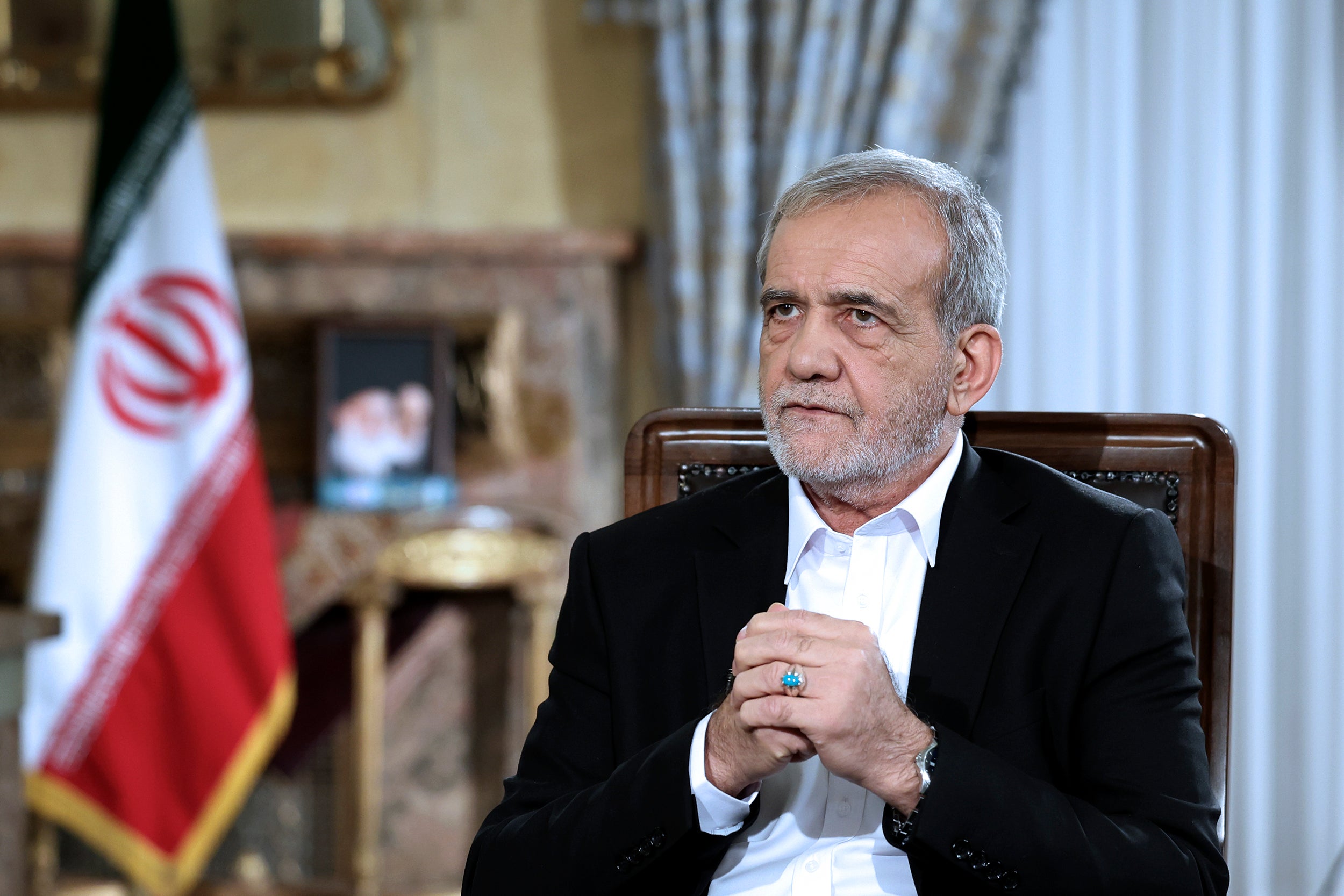Iran's new president travels to neighboring Iraq on his first trip abroad
Iran’s reformist new president is in Iraq on his first trip abroad, hoping to cement Tehran's ties to Baghdad as regional tensions increasingly pull both countries into the Mideast fray

Iran's reformist President Masoud Pezeshkian traveled to Iraq on Wednesday on his first trip abroad, hoping to cement Tehran's ties to Baghdad as regional tensions increasingly pull both countries into the widening Middle East fray.
For Iran, its relationship with Iraq remains crucial for economic, political and religious reasons — something that has especially been true since the U.S.-led 2003 invasion of Iraq toppled dictator Saddam Hussein, who launched a bloody, yearslong war against Iran in the 1980s.
Baghdad, meanwhile, has been trying to balance its relationship with Tehran, which backs powerful Shiite militias in the country, as well as with the United States, which maintains a force of 2,500 troops in Iraq that remain in battle with remnants of the once-dominant extremist Islamic State group.
The American troops remain both a literal and rhetoric target for Iran, particularly as Israel's nearly year-old war on Hamas in the Gaza Strip grinds on. Just before Pezeshkian's arrival, an explosion struck a site near Baghdad International Airport used by the U.S. military Tuesday night. The circumstances of the explosion were not clear and there was no immediate information on damages or casualties.
Pezeshkian, who was sworn in as Iran's new president in July, is also scheduled to visit Shiite shrines in the cities of Karbala and Najaf, a railroad project to link the southern city of Basra to Iran and Irbil, the capital of Iraq's semiautonomous northern Kurdish region.
Ahead of the trip, Iran's Foreign Minister Abbas Araghchi told an Iraqi television channel that Pezeshkian hoped to tighten security relations with Baghdad, as well as economic ties.
“We want to see Iraq develop, grow, be prosperous and strong on our borders, and any economic project that achieves this goal enjoys our support,” Araghchi told Al-Furat Television, owned by Iraqi Shiite cleric and politician Ammar al-Hakim.
Still, there have been tensions between Iran and Iraq, particularly after Iranian missiles hit sites in Iraq in attacks over the past six years, targeting Kurdish militias, a base housing American forces and also what Tehran alleged were Israeli sites in Iraq.
Iran also fired missiles and flew drones over Iraq in its unprecedented direct attack on Israel in April. That attack followed a suspected Israeli strike on an Iranian diplomatic compound in Damascus, Syria, that killed two Iranian generals and five officers, as well as a member of the Lebanese Shiite militia Hezbollah, an Iranian ally.
The Islamic Republic has also threatened further retaliation against Israel over the July assassination of Hamas leader Ismail Haniyeh in Tehran, which could include another missile barrage.
For Iraq, close ties with the Shiite powerhouse next door are also needed to maintain Baghdad's supply of imported Iranian natural gas to meet its electricity needs. A barter deal for Iraqi crude oil has seen the supply continue, though U.S. sanctions targeting Tehran over its rapidly advancing nuclear program have put pressure on Baghdad.
Meanwhile Tuesday, the United States and Britain formally accused Iran of supplying short-range ballistic missiles to Russia to use against Ukraine, announcing new sanctions on both Moscow and Tehran.
The continued presence of U.S. troops in Iraq remains a concern for Iran. Since the Israel-Hamas war broke out on Oct. 7, Iraqi militias allied with Iran have targeted U.S. forces here, leading to American airstrikes targeting the militias.
Iraqi politicians continue to debate the issue of whether to back having American troops remain in the country.
___
Associated Press writers Nasser Karimi in Tehran, Iran, and Jon Gambrell in Dubai, United Arab Emirates, contributed to this report.
Bookmark popover
Removed from bookmarks